Past experiments by team members
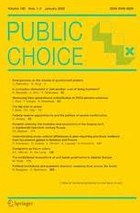
Do women always behave as corruption cleaners?
Guerra, A., Zhuravleva, T., (2022). Public Choice
We use experimental data to explore the conditions under which males and females may differ in their tendency to act corruptly and their tolerance of corruption. We ask if males and females respond differently to the tradeoff between the benefits accrued by corrupt actors versus the negative externality imposed on other people by corruption. Our findings reveal that neither males nor females uniformly are more likely to engage in, or be more tolerant of corruption: it depends on the exact bribery conditions—which can reduce or enhance welfare overall—and the part played in the bribery act. Females are less likely to tolerate and engage in corruption when doing so reduces overall welfare. On the other hand, males are less tolerant of bribery when it enhances welfare but confers payoff disadvantages on them relative to corrupt actors. Females’ behavior is consistent across roles when bribery reduces welfare, but apart from that, gender behavior is strongly role-dependent.
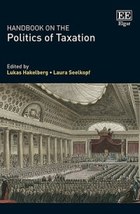
Why do People Pay Taxes? Explaining Tax Compliance by Individuals
Chapter in volume
Guerra, A. and Harrington, B. (September 2021). Why do People Pay Taxes? Explaining Tax Compliance by Individuals, in Handbook on The Politics of Taxation, Lukas Hakelberg and Laura Seelkopf (Eds.), Chapter 23, pages 356-374, Edward Elgar Publishing, Cheltenham, UK: Edward Elgar Publishing. ISBN: 978 1 78897 941 2
***
This comprehensive Handbook provides an insight into the main concepts and academic debates on taxation from a political science perspective. Providing a background to current debates on green taxation, taxation and inequality, taxation and gender, tax evasion and avoidance, and tax compliance, it offers potential avenues for future research.
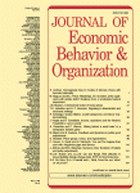
Do bystanders react to bribery?
Guerra, A., & Zhuravleva, T. (2021). Do bystanders react to bribery?. Journal of Economic Behavior & Organization, 185, 442-462.
Abstract: Do individuals consider bribery as an acceptable behavior? We use a newly-designed game to study if—and under which conditions—bystanders are willing to express disapproval for bribing behavior through costly punishment. We manipulate two key dimensions: the benefits accrued by corrupt actors and the externality imposed on idle victims. We show that on average bystanders were unresponsive nearly half of the time they witnessed bribery. We also find that context specificity matters, as bystanders were more willing to punish when bribing caused them a disadvantageous inequity with respect to corrupt actors, even if bribing enhanced overall welfare. In an additional experiment testing whether social norms play any role in punishment decisions, we find that norms did not align with the observed bystanders’ behavior. This further supports our main result that bystanders did not react to bribery due to a concern for the social norm, but rather for their own comparative disadvantage relative to corrupt actors.
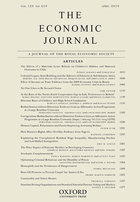
At the Root of the North–South Cooperation Gap in Italy: Preferences or Beliefs?
Bigoni, M., Bortolotti, S., Casari, M., & Gambetta, D. (2019).The Economic Journal, 129(619), 1139-1152.
Abstract: The sharp gap in development between the North and the South of Italy represents a paradigmatic case of persistent within-country disparities. The evidence suggests that this gap could depend on a difference in the ability to cooperate. We investigate experimentally three possible sources of this difference, and find that Northerners and Southerners share the same pro-social preferences, but differ both in their belief about cooperativeness and in the aversion to social risk, respectively, more pessimistic and stronger among Southerners; intervention or events that reduced pessimistic beliefs should directly boost cooperation.
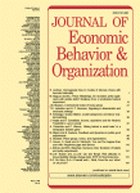
Attitude–behavior consistency in tax compliance: A cross-national comparison
Guerra, A., & Harrington, B. (2018). Journal of Economic Behavior & Organization, 156, 184-205.
Abstract: Are individuals’ attitudes about paying taxes consistent with their behavior? A direct link between attitudes (tax morale) and behavior (tax compliance) has long been assumed, despite an extensive social scientific literature attesting to the generally weak congruence between the two. This study builds on an emerging body of work questioning the link between tax morale and compliance. It innovates with a cross-national experimental research design whose results indicate that populations with high levels of tax morale exhibit higher evasion rates than those with low levels of tax morale; thus, the study finds that individual self-reported tax morale cannot predict actual evasion choices. Methodologically, the paper contributes the first results of a laboratory experiment on taxation in Denmark, comparing them to laboratory findings from Italy; while previous research indicates that these two countries lie at opposite extremes in tax compliance and morale, our findings run contrary to “culturalist” explanations. Our results show that Danes are more likely to evade tax than Italians, and that individuals’ attitudes toward tax do not significantly predict their actual evasion choices. Finally, we show that discrepancies in tax behavior between Italian and Danish subjects are affected by gender and risk aversion.
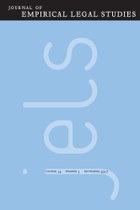
Unbundling Efficient Breach: An Experiment.
Bigoni, M., Bortolotti, S., Parisi, F., & Porat, A. (2017). Journal of Empirical Legal Studies, 14(3), 527-547.
Abstract: Current law and economics scholarship analyzes efficient breach cases monolithically. The standard analysis holds that breach is efficient when performance of a contract generates a negative total surplus for the parties. However, by simplistically grouping efficient breach cases as of a single kind, the prior literature overlooks that gain‐seeking breaches might be different from loss‐avoiding breaches. To capture these different motives, we designed a novel game called the Contract‐Breach Game where we exogenously varied the reasons for the breach—pursuing a gain or avoiding a loss—under a specific performance remedy. Results from an incentivized laboratory experiment indicate that the motives behind the breach induce sizable differences in behavior; subjects are less willing to renegotiate when facing gain‐seeking than loss‐avoiding breaches, and the compensation premium obtained by the promisee is higher. Our analysis suggests that inequality aversion is an important driver of our results; indeed, inequality‐averse subjects accept low offers more often in cases of loss‐avoiding breaches than gain‐seeking breaches. These results give us insight into the preferences and expectations of ordinary people in a case of a breach.
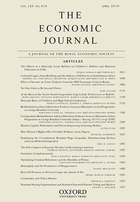
Amoral Familism, Social Capital, or Trust? The Behavioural Foundations of the Italian North–South Divide
Bigoni, M., Bortolotti, S., Casari, M., Gambetta, D., & Pancotto, F. (2016). The Economic Journal, 126(594), 1318-1341.
Abstract: We present the first laboratory‐in‐the field experiment on the Italian North–South divide. Using a representative sample of the population, we measure whether regional disparities in ability to cooperate emerge even if differences in geography, institutions and criminal intrusion are silenced. We report that a behavioural gap in cooperation exists: Northern and Southern citizens react differently to the same incentives. Moreover, this gap cannot be accounted for by tolerance for risk, proxies of social capital and ‘amoral familism’. At least a share of North–South disparities is likely to derive from persistent differences in social norms.
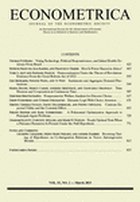
Time horizon and cooperation in continuous time
Bigoni, M., Casari, M., Skrzypacz, A., & Spagnolo, G. (2015). Econometrica, 83(2), 587-616.
Abstract: We study social dilemmas in (quasi‐) continuous‐time experiments, comparing games with different durations and termination rules. We discover a stark qualitative contrast in behavior in continuous time as compared to previously studied behavior in discrete‐time games: cooperation is easier to achieve and sustain with deterministic horizons than with stochastic ones, and end‐game effects emerge, but subjects postpone them with experience. Analysis of individual strategies provides a basis for a simple reinforcement learning model that proves to be consistent with this evidence. An additional treatment lends further support to this explanation.
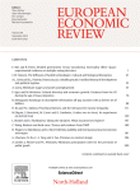
It takes two to cheat: An experiment on derived trust
Bigoni, M., Bortolotti, S., Casari, M., & Gambetta, D. (2013). European Economic Review, 64, 129-146.
Abstract: Social life offers innumerable instances in which trust decisions involve multiple agents. Of particular interest is the case when a breach of trust is not profitable if carried out in isolation, but requires an agreement among agents. In such situations the pattern of behaviors is richer than in dyadic games, because even opportunistic trustees who would breach trust when alone may act trustworthily based on what they believe to be the predominant course of action. Anticipating this, trusters may be more inclined to trust. We dub these motivations derived trustworthiness and derived trust. To capture them, we design a “Collective Trust Game” and study it by means of a laboratory experiment. We report that overall levels of trustworthiness are almost thirty percentage points higher when derived motivations are present, and this generates also higher levels of trust. In our set-up, the effects of derived trustworthiness are comparable in size to positive reciprocity, and more important than concerns for equality.
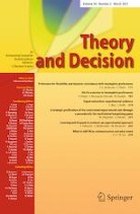
A tale of two cities: An experiment on inequality and preferences
Bigoni, M., Bortolotti, S., & Rattini, V., Theory and Decision, 2021.
Abstract: The existence of a strong link between socio-economic background and individual preferences has been documented among both children and grown-ups. Here, we study whether such a correlation persists even in a highly homogeneous population of young adults: university students. Our findings indicate that participants living in an area characterized by a high socio-economic environment tend to trust more and are more inclined to reciprocate higher levels of trust, as compared to those coming from less wealthy neighborhoods. This behavioral difference is, at least in part, driven by heterogeneities in beliefs: subjects from the most affluent part of the city have more optimistic expectations on their counterpart’s trustworthiness than those living in a lower socio-economic environment. By contrast, no significant differences emerge in other preferences: generosity, risk attitudes, and time preferences. Finally, we do not find any systematic evidence of out-group discrimination based on neighborhood identity.
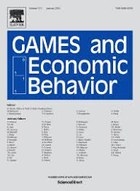
Economic polarization and antisocial behavior: An experiment
Bigoni M.; Bortolotti S.; Nas Ozen E. (2021). Games and Economic Behavior, 126, pp. 387 - 401.
Economic inequality may fuel frustration, possibly leading to anger and antisocial behavior. We experimentally study a situation where only the rich can reduce inequality while the poor can express their discontent by destroying the wealth of a rich counterpart with whom they had no previous interaction. We test whether the emergence of antisocial behavior depends only on the level of inequality, or also on the conditions under which inequality occurs. We compare an environment in which the rich can unilaterally reduce inequality with one where generosity makes them vulnerable to exploitation by the poor. We observe more antisocial behavior when reducing inequality would be safe for the rich. This cannot be rationalized by inequality aversion alone, while it is in line with models of anger as the result of frustrated expectations. Indeed, the rich are expected to be more generous in the safe scenario, but this hope is systematically violated.

Solar geoengineering may lead to excessive cooling and high strategic uncertainty
Abatayo, A. L., Bosetti, V., Casari, M., Ghidoni, R., & Tavoni, M. (2020). Proceedings of the National Academy of Sciences, 117(24), 13393-13398.
Abstract: Climate engineering—the deliberate large-scale manipulation of the Earth’s climate system—is a set of technologies for reducing climate-change impacts and risks. It is controversial and raises novel governance challenges [T. C. Schelling, Climatic Change, 33, 303–307 (1996); J. Virgoe, Climatic Change, 95, 103–119 (2008)]. We focus on the strategic implications of solar geoengineering. When countries engineer the climate, conflict can arise because different countries might prefer different temperatures. This would result in too much geoengineering: the country with the highest preference for geoengineering cools the planet beyond what is socially optimal at the expense of the others—a theoretical possibility termed “free-driving” [M. L. Weitzman, Scand. J. Econ., 117, 1049–1068 (2015)]. This study is an empirical test of this hypothesis. We carry out an economic laboratory experiment based on a public “good or bad” game. We find compelling evidence of free-driving: global geoengineering exceeds the socially efficient level and leads to welfare losses. We also evaluate the possibility of counteracting the geoengineering efforts of others. Results show that countergeoengineering generates high payoff inequality as well as heavy welfare losses, resulting from both strategic and behavioral factors. Finally, we compare strategic behavior in bilateral and multilateral settings. We find that welfare deteriorates even more under multilateralism when countergeoengineering is a possibility. These results have general implications for governing global good or bad commons.
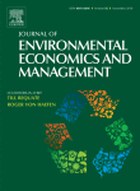
Carbon is forever: A climate change experiment on cooperation
Calzolari, G., Casari, M., & Ghidoni, R. (2018). Journal of environmental economics and management, 92, 169-184.
Abstract: Greenhouse gases generate impacts that can last longer than human civilization itself. Such persistence may affect the behavioral ability to cooperate. In a laboratory experiment, we study mitigation efforts with dynamic externalities in a framework that reflects key features of climate change. In treatments with persistence, pollution cumulates and generates damages over time, while in another treatment it has only immediate effects and then disappears. We show that with pollution persistence, cooperation is initially high but then systematically deteriorates with high stocks of pollution.
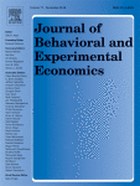
A fine rule from a brutish world? An experiment on endogenous punishment institution and trust.
Sun, Huojun, and Maria Bigoni. Journal of behavioral and experimental economics 77 (2018): 158-169.
Abstract: By means of a laboratory experiment, we study the impact of the endogenous adoption of a collective punishment mechanism within a one-shot binary trust game. The experiment comprises three games. In the first one, the only equilibrium strategy is not to trust, and not to reciprocate. In the second we exogenously introduce a sanctioning rule that imposes on untrustworthy second-movers a penalty proportional to the number of those who reciprocate trust. This generates a second equilibrium where everybody trusts and reciprocates. In the third game, the collective punishment mechanism is adopted through majority-voting. In line with the theory, we find that the exogenous introduction of the punishment mechanism significantly increases trustworthiness, and to a lesser extent also trust. However, in the third game the majority of subjects vote against it: subjects seem to be unable to endogenously adopt an institution which, when exogenously imposed, proves to be efficiency enhancing.
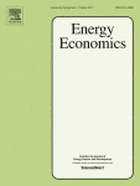
Climate change: Behavioral responses from extreme events and delayed damages
Ghidoni, R., Calzolari, G., & Casari, M. (2017). Energy Economics, 68, 103-115.
Abstract: Understanding how to sustain cooperation in the climate change global dilemma is crucial to mitigate its harmful consequences. Damages from climate change typically occur after long delays and can take the form of more frequent realizations of extreme and random events. These features generate a decoupling between emissions and their damages, which we study through a laboratory experiment. We find that some decision-makers respond to global emissions, as expected, while others respond to realized damages also when emissions are observable. On balance, the presence of delayed/stochastic consequences did not impair cooperation. However, we observed a worrisome increasing trend of emissions when damages hit with delay.
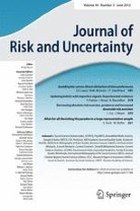
Choice reversal without temptation: A dynamic experiment on time preferences
Casari, M., & Dragone, D. (2015). Journal of Risk and Uncertainty, 50(2), 119-140.
Abstract: We study intertemporal choices through an experiment run over multiple dates and we show that intertemporal behavior is affected by additional drivers beyond impatience and present-biased preferences. By eliciting a subject’s plan and tracking its implementation over time, this dynamic design helps our understanding of time inconsistency through the identification and measurement of three notions of choice reversal in intertemporal behavior. In the experiment, there is widespread choice reversal and demand for flexibility. Neither the usual exponential nor hyperbolic discounting models can account for the observed behavior.
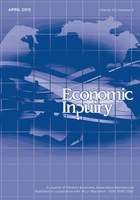
Norms of punishment: Experiments with students and the general population
Bortolotti, S., Casari, M., & Pancotto, F. (2015). Economic Inquiry, 53(2), 1207-1223.
Abstract: Norms of cooperation and punishment differ across societies, but also within a single society. In an experiment with two subject pools sharing the same geographical and cultural origins, we show that opportunities for peer punishment increase cooperation among students but not in the general population. In previous studies, punishment magnified the differences across societies in people's ability to cooperate. Here, punishment reversed the order: with punishment, students cooperate more than the general population while they cooperate less without it.
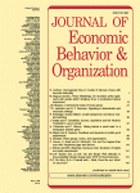
Feedback and dynamics in public good experiments
Bigoni, M., & Suetens, S. (2012). Journal of Economic Behavior & Organization, 82(1), 86-95.
Abstract: In this paper we study the effects of providing additional feedback about individual contributions and/or earnings on contributions and the dynamics of contributions in a repeated public good game. We include treatments where subjects can freely choose whether to obtain additional information about individual contributions or individual earnings. We find that, in the aggregate, contributions are lower when feedback on earnings is provided compared to when feedback on contributions is provided. We also find that there exist substantial but intuitively appealing differences in the way individuals react to feedback. Particularly, individuals with a high propensity to contribute tend to imitate the highest contributor more often and are more inclined to obtain feedback about individual contributions compared to individuals with a lower propensity to contribute.